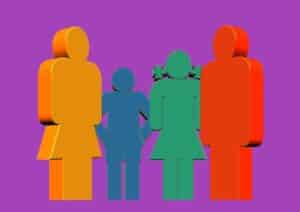Childhood Obesity on the Brain

An impartial observer from some other solar system, sent to garner facts about Earthlings, would eventually run up against the dislike of body fat that prevails among so many people in so many cultures. To the interplanetary visitors, the answer, including whether there even needs to be an answer, might seem obvious: “Don’t become obese.”
The scholar from afar would do the equivalent of scratching their head, musing… How much sheer brain power, how many thousand cumulative years of academic study have been devoted to dwelling on this mystery? How many lab animals have been sacrificed in pursuit of weight-loss knowledge?
The impulse to highlight a certain article published by Dr. Pretlow is irresistible. With every passing year, it becomes more demonstrable that the issues surrounding obesity and body image can impact a person in ways that are not only difficult for a non-professional observer to imagine but which, in some cases, lead to appalling results.
The human condition
It is not so very hard to change or disguise skin color, at least for the short term. Making the hair look different is almost laughably simple. To appear as a member of the opposite sex has largely been possible since people started wearing clothes. It may not be easy, or officially approved, but in most societies throughout history, it has been doable. As time goes on, that potentiality has grown for at least a percentage of folk, depending mostly on financial capability.
But… and it’s a big butt…
Okay, that is a lousy pun. Moving on… A person can be made to look taller, but to appear shorter requires some skillful trickery. A person can so easily be made to look corpulent, but to achieve the illusion of slimness is incontestably a challenge, involving a whole different sort of visual phenomenon. To achieve the illusion of a smaller body requires considerable effort — training in visual aesthetics, access to specialized supplies and equipment, and good lighting.
The sad fact is, it’s pretty much a one-way trick. To appear bigger and fatter is almost infinitely possible, depending only on how many pillows a person could tie on with ropes, or how clever a balloon-suit they could hide themselves in before inflating it and hoping not to sit on any sharp object.
All of which only emphasizes how relatively impossible it is to go the other way. Sure, optical illusion and an excellent tailor can do a lot to disguise a hefty physique. And let’s not start in on the possibilities offered by photoshopping and AI, which can work their seeming magic to portray a human as gigantic or svelte. Messing with images is so easy and obvious, it doesn’t even really belong in a serious discussion like this.
The logical answer
The obvious solution is to simply not be so big! Eat less than is needed. Use up a lot of energy. It will take time, and the task will be difficult for various reasons, but of all potential metamorphoses, it seems, in theory, at least, to be the most possible. Theoretically, to become a person with a smaller body ought to be the easiest transition of all.
So then, what is the problem? What is wrong with you and me and millions of overweight Earthlings who just can’t get it together and shed the pounds? How many thousands of hours of thought and experimentation have been utilized over the years to figure this out? How many words and bytes have we utilized in trying to first grasp the problem at all, and then to explain it to others?
More or less than required to figure out transportation without fossil fuels? More or less than has been spent trying to avoid (or facilitate) nuclear annihilation? Why is slimming down a human body such an imposing, vast, difficult, problematic, wearisome chore?
Groping for clarity
We could quote some dismal and/or shocking statistics about Obesity, Growth Of, but that would be needlessly boring. One more question comes to mind, a major one, and basically the most important reason for all this soul-searching. Just exactly how badly does this whole subject of weight damage young people who, truth be told, have quite a lot of other troublesome issues to deal with? (It is tempting to go with a colloquial expression there, like “These poor kids have too much on their plates already.” But, no.)
Now, veering back to the original puzzling topics that inspired the discussion, the entire point here was to pose yet another question. Despite the struggle to avoid and suppress obesity having been spectacularly unproductive so far, maybe some kind of a step back could be taken. Possibly, we could temporarily, just as an experiment, set aside many of the thoughts we have been accustomed to holding onto, about these matters.
Of course, many visitors here have already read the work authored by Robert Pretlow and Suzette Glasner, titled “Reconceptualization of eating addiction and obesity as displacement behavior and a possible treatment.” For those who are familiar and for newer readers too, some interesting notions dwell, awaiting discovery, in its pages. In particular, interested professionals and laypersons alike might meet up with ideas that could blossom into useful revelations and actual change.
Your responses and feedback are welcome!
Source: “Reconceptualization of eating addiction and obesity as displacement behavior and a possible treatment,” NIH.gov, June 2022
Image by geralt/Pixabay










 FAQs and Media Requests:
FAQs and Media Requests: 











